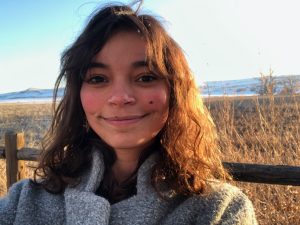
Cassandre Venumière-Lefebvre
[Pronounced: Cassand]
PhD Student – Wildlife Conservation
I grew up in France, between Paris and Normandie. I pursued a B.S. in Biology and Evolution at Paris Saclay University. Wanting to expose myself to novel ways to do science and think society’s interactions with wildlife, I traveled to Colorado and volunteered for the National Park Service. My work there involved measuring the ecological impacts of the removal of a large predator, wolves. It introduced me to conservation science, and I decided to pursue a master’s degree in Conservation Ecology at Paris Saclay University. During my Master’s, I came back to Colorado and joined CSU’s Center for Human-Carnivore Coexistence as an intern, where I explored definitions and metrics of
coexistence between humans and carnivores throughout the world. I graduated in 2020 and, by then feeling at home in Colorado, I stayed at CSU to continue my studies as a Ph.D. student.
My research explores human-carnivore interactions through biology, spatial ecology, social science, and policy. With the PLPG, I study policy instruments used to reduce urban conflict between people and American black bears in Colorado. I partner with city governments, non-profit organizations, and wildlife management agencies throughout the state and hope to learn from them to identify conflict-reduction strategies that can be used by other communities in Colorado.
I was born and raised in southern Arizona and went to Northern Arizona University, where I got my bachelors of science in forestry with a certificate in wildfire ecology and management. Admittedly, I chose to study forestry because it was the degree that held classes outside. However, it wasn’t until I took a class titled “Forests and Global Change” that I came to the realization that forests can be used to solve an entire host of problems we are facing in the world. Upon graduating from NAU, I joined a research group that look at the feasibility of wood-based infrastructure in an earthquake prone Himalaya. My role specifically was to review relevant environmental, economic, and social
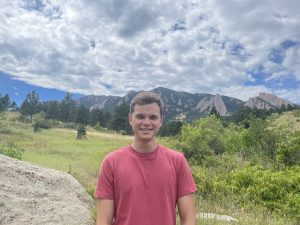
Cole Buettner
MS Student – Forest Sciences
policies that either create barriers or opportunities for the implementation of a wood-based infrastructure. See my publication here! Now I am attending CSU for a Masters of Forest Science, where I hope to bring my previous research experience to study land management policies in the United States. My interests are in wildfire policy and how pre-and-post fire processes can be streamlined through collaborative and pre-planning efforts.
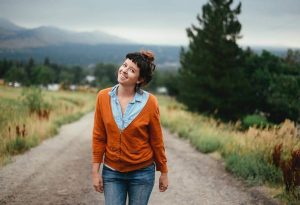
Lily Calfee
MS Student – Forest Sciences
I grew in rural Vermont, amidst working forests and farmland, with a family history of forest conservation and cross-aisle collaboration. I earned my undergraduate degree from the University of Vermont in 2009, a BA in Studio Arts with a minor in Anthropology. I returned to the arts in 2017 with an exploration into traditional and sustainable textile around the world. This work brought me to a fallow flax field in rural Lithuania, where a local seamstress explained that Lithuania’s flax fields once provided most of Europe’s linen. However, while home gardens still grew abundantly, the Soviet occupation and USSR land-use policies farmed the rich agricultural
land to dust. As the flax harvest dwindled, factories closed, and communities sank into poverty. This intersection of policy, ecology, and local culture drove me to learn more about how land management policies in the US affect the health of our forests and the rural communities that depend on those landscapes.
Before pursuing my MS at Colorado State University, I worked as a freelance writer and coach, developing 8+ years of experience in facilitation, marketing, and content creation. I put these skills to use within the Public Lands Policy Group, where I research multi-watershed-scale collaboratives and the hurdles they face as they scale up to increase the pace and scale of forest restoration under the context of a changing climate. I’m particularly interested in how boundary-spanning organizations can help us meet the “triple bottom line” of social, environmental, and ecological restoration. Ultimately, I hope to facilitate effective land management partnerships between policymakers, NGOs, stakeholders, and rightsholders.
I grew up in rural North Carolina and moved to Colorado to pursue my undergraduate degree, a Bachelor of Science in Ecosystem Science and Sustainability. I graduated in December of 2019 and came back to CSU in the Fall of 2020 to pursue a Masters of Forest Sciences, with a focus on climate adaptation policy at the state level.
In my undergrad, during field work in Peru, I developed an interest in rural communities’ resilience and response to a changing climate. This interest included understanding the effects of policy and stakeholding in addressing large-scale disturbance. Inspired by this interest, I later served as a fellow for the Colorado Science and Engineering Policy Fellowship. I completed an independent research project and proposal focused on
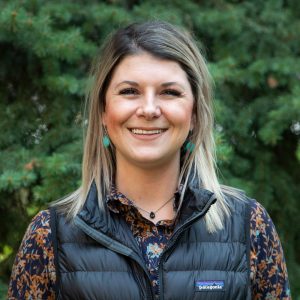
Tamera Breidenbach
MS Student – Forest Sciences
Colorado wetland resilience. I presented my policy proposal to state leaders and legislators to encourage resilient Colorado wetland ecosystems. I presented an expanded version of my wetlands project at the Conference of the Parties (COP) 25 in Madrid, Spain in December 2019 for the United Nations Framework Convention on Climate Change (UNFCCC). I also have interned for our US House Representative Joe Neguse and worked as a Legislative Aide for a Colorado State Senator during 2020.
As part of my work for the Public Lands Policy Group, I am working as the Program Manager for the Climate Adaptation Partnership (CAP) for Policy Innovation and Research Coordination.
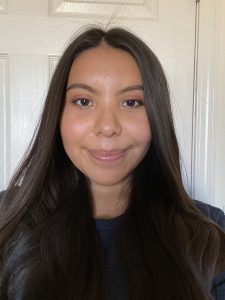
Caitlyn Cruz
MS Student – Rangeland Ecosystem Science
I am from Ohkay Owingeh, New Mexico, and grew up on the reservation. I earned a Bachelor of Science degree in Environmental Science and Chemistry from New Mexico State University. My academic journey was fueled by a desire to bridge the gap between traditional indigenous knowledge and modern STEM fields.
Living in Northern New Mexico, I have experienced impacts of wildfires such as the Los Conchas Fire and Hermit’s Peak Fire, which sparked a personal mission to explore fire management and operations from both a scientific and cultural perspective.
At Colorado State University, I have taken on the role of Graduate Research Assistant.
My work centers on assessing the post-wildland fire management impact on Southwest tribes in the United States. My research enforces my commitment to bringing indigenous voices to the forefront of environmental policy and decision-making processes. I have a strong passion and dedication to indigenous rights, environmental justice, and want to contribute to the integration of traditional knowledge into STEM fields.
Are you a prospective student?
Click here to learn about graduate opportunities with the PLPG.
